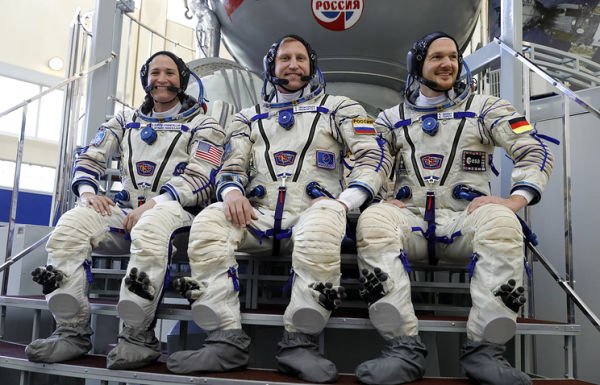Alexander Gerst said that the Ukrainian crisis worries the Germans
BERLIN, January 27. /tass/. German astronaut of the European Space Agency Alexander Gerst believes that cooperation with Russia in space can help strengthen mutual understanding and thus contribute to the resolution of the Ukrainian crisis.
As Gerst told the DPA news agency on Thursday on the sidelines of the European Space Conference in Brussels, space flights are so complicated that they forced countries to cooperate with each other even during the Cold War. "It has always been mutual understanding between nations," the astronaut said. "When you get on a spaceship with someone, go into space, and then see the Earth from the outside, things like nationality are erased." "Obviously, there are no borders here," he added.
The Ukrainian crisis, according to Gerst, worries the Germans. "We are also concerned about such conflicts. We hope that our comrades will be able to overcome it, and we are trying to contribute to this," he noted, however, speaking about his Russian cosmonaut colleagues with whom he has been training and friends for many years.
Russia and the United States are negotiating security guarantees to Moscow from NATO, in particular on the non-expansion of the alliance and the withdrawal of strike weapons. Nevertheless, the West claims that the discussion is designed to prevent Russia's allegedly impending invasion of Ukraine. The press secretary of the President of the Russian Federation Dmitry Peskov called such statements an empty escalation of tension and stressed that Russia does not pose a threat to anyone. He did not rule out that provocations could be undertaken to justify such statements by the West, and warned of the most serious consequences of any attempts to resolve the crisis in eastern Ukraine by force.
Alexander Gerst is a German scientist, geophysicist and volcanologist, the 11th astronaut of Germany. In 2010, he completed a training course at the Yuri Gagarin Cosmonaut Training Center and qualified as a "user" of the systems of the Russian segment of the International Space Station. In 2014, as part of the crew of the Russian Soyuz TMA-13M spacecraft, he arrived at the ISS. He made his second space flight on Soyuz MS-09 in 2018.

